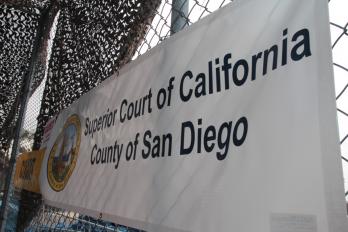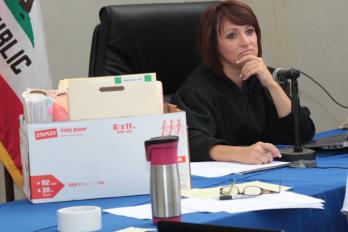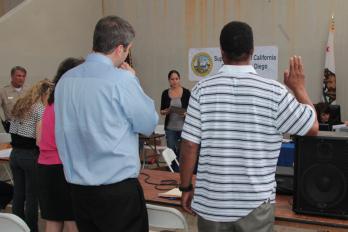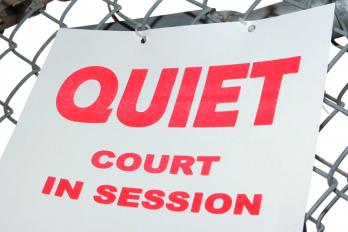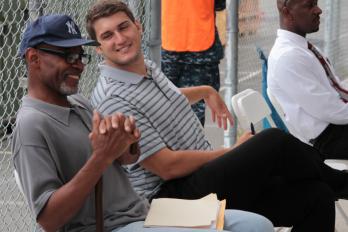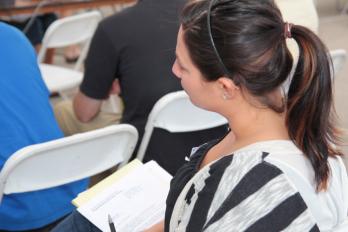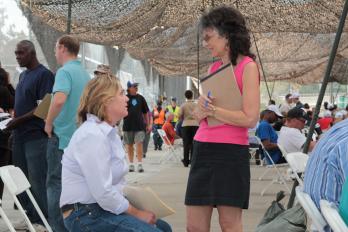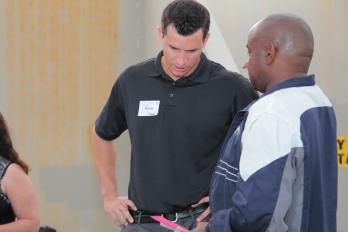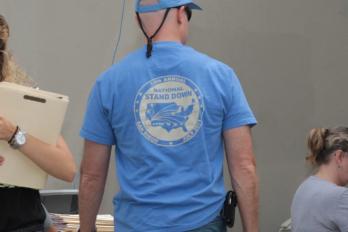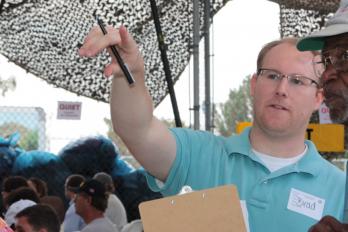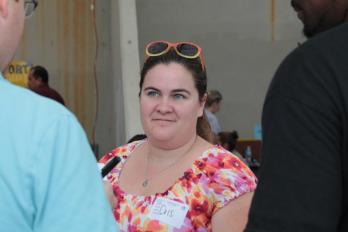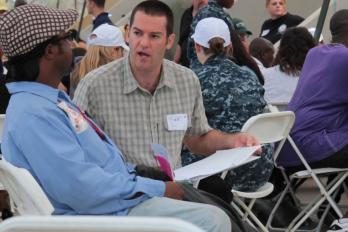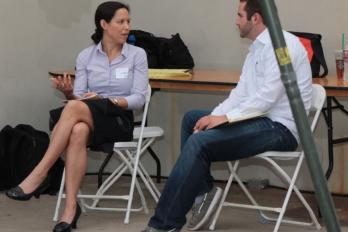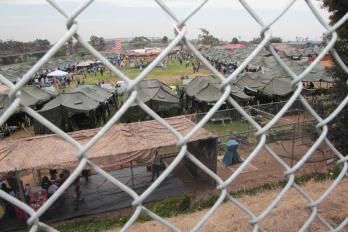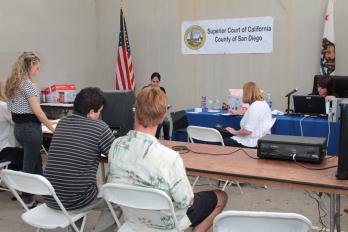TJSL Students Stand Up for Veterans at Stand Down
July 13, 2012
“As long as you have a robe, you’re all set no matter where you are,” said Superior Court Commissioner Kelly Doblado, who was holding court on a handball court at Stand Down 2012 on July 13. “Have robe, will travel.”
After all, a court is a court is a court, even if the planes landing at Lindbergh Field occasionally made it hard to hear the proceedings as they passed overhead.
Stand Down is the annual event held by Veterans Village of San Diego (VVSD) to help homeless or recently homeless veterans with all kinds of issues, from a warm shower, to medical care, to legal assistance.
That’s where Thomas Jefferson School of Law’s Veterans Legal Assistance Clinic (VLAC) comes in.
TJSL students who are part of the clinic the law school operates at VVSD were representing veterans before Commissioner Doblado, in family court at Stand Down to hear the cases of the vets who were asking for changes in their child support obligations.
Clinic student Tyler Miles 3L got the commissioner to give Air Force veteran Timothy Fisher back his suspended driver’s license, to help him get back to work and maintain his child support payments at a rate he can afford to pay.
“It was great. It was really great,” Fisher said of Mile’s legal assistance. And Miles said, “It’s great to be able to help. It shows me that this is what I want to do.”
“This is a noble showing for TJSL, because the veterans have done so much for our country,” said Jessica Barber 3L, who is working for the County Department of Child Support services and appeared in the Stand Down court. “Although it feels a little weird to be here in jeans and flip-flops.”
Cris Kinsella 2L and Brad Seliga 3L also work with the County Child Support Division and were there to keep things flowing – making sure each veteran found the right place to be to get the right services.
“This is a really unique experience,” said Melissa Cantu 2L as she waited with her client Irene Wiedenhoft, a Navy veteran who is applying for disability and was hoping to get her child support case closed. “There is a lot of client interaction,” Cantu added, “and it’s reassuring that Professor Maiden and Tiffany Gilmartin are here because we do have a lot of questions.”
Professor Jan Maiden is all too happy to answer those questions and stand with them as they appear before the court commissioner. She is a TJSL adjunct professor who is working with the veterans clinic this summer because clinic director, Professor Steve Berenson, is teaching at TJSL’s Study Abroad Program in Nice, France.
As for the clinic students at Stand Down, “It’s wonderful what they’re doing,” Maiden says. “It’s a great opportunity to help others and get real life experience.”
Tiffany Gilmartin is the clinic fellow, who supervises the students at VLAC. “They’re doing a fantastic job,” she said. “It’s a great opportunity to see justice working the way it should.”
TJSL has operated the veterans clinic since 2006 and has been representing veterans at Stand Down ever since. In addition to Tyler Miles and Melissa Cantu, TJSL students Tim Seeger, Shane Wate, Ryan Yates, Tyler Miles, Michael Klitze and Nell Marshall represented veterans at Stand Down this year. Also, TJSL Alumni Cheryl Ramancious ’10, Stefano Molea ’11, Tristan Aeschleman ’11 and Ed Neustetter ’07 were there to represent veterans.
3L Ryan Yates says that representing veterans is “more rewarding than anything. VLAC is a way to give back and is an experience like no other.”
After hearing the first several cases, Commissioner Doblado said that the TJSL students are “doing a wonderful job.” She feels Stand Down is a “good place for veterans to start making new lives,” and that she “is happy to help with that process” by holding Family Court at Stand Down.
“It’s a place for them to start moving forward,” she says. “If their child support is more than they can possibly pay because of their circumstances, then it pushes them even lower and no one’s interest is served. We have to help them find a balance.”
As for holding court outdoors, Jessica Barber said, “It’s a more comfortable environment for them than a courtroom. They’re in a tough predicament, and we make it possible to support their children as best they can as they (the veterans) get back on their feet. We have the child’s best interest and their best interest in mind.”
